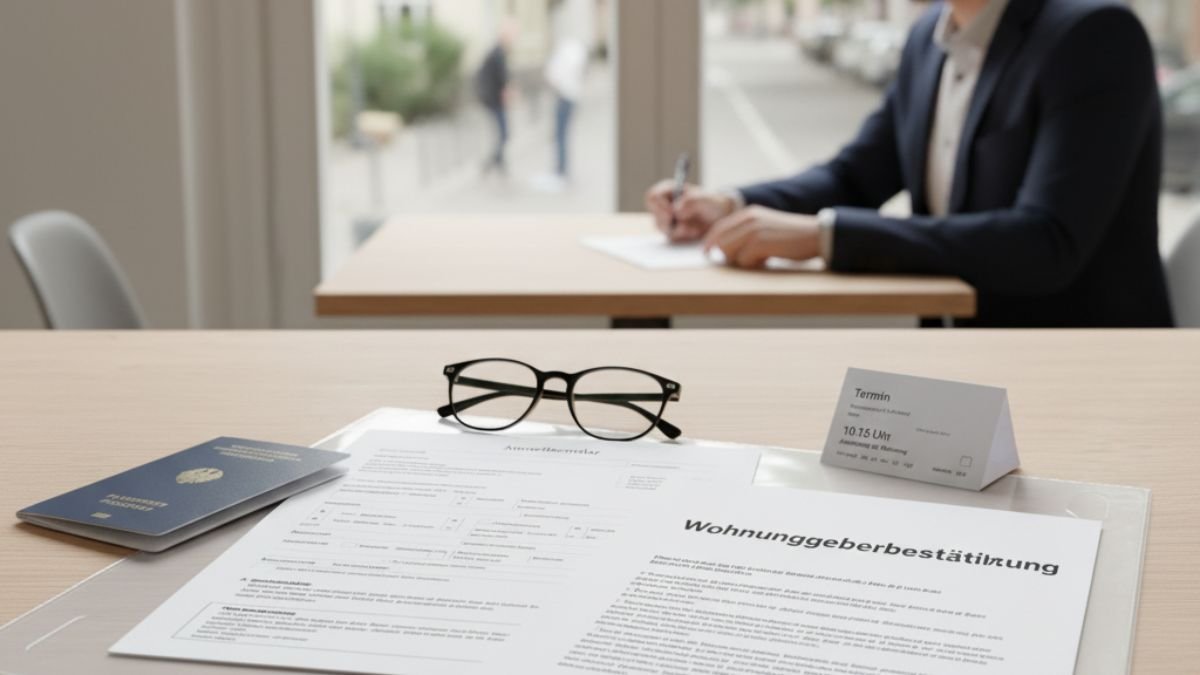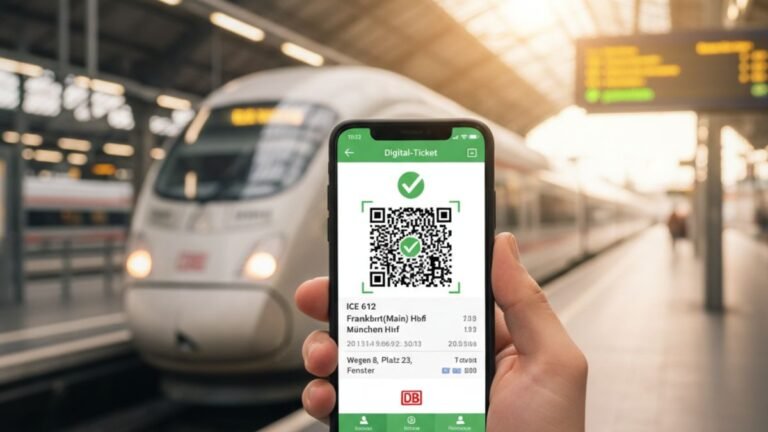How to Register Your Address in Germany (Anmeldung): A Step-by-Step Walkthrough

Moving to Germany is an exciting venture, but it comes with a list of essential bureaucratic tasks. Right at the top of that list, and arguably the most crucial first step, is registering your address. This process, known as the Anmeldung, is mandatory for anyone planning to stay in Germany for more than three months.
Successfully completing your Anmeldung is the gateway to nearly everything else: opening a bank account, getting a tax ID (Steueridentifikationsnummer), setting up internet, and even getting a library card. It might sound intimidating, but with the right preparation, it’s a straightforward process.
This guide will walk you through every step of registering your address in Germany.
What is the Anmeldung?
The Anmeldung is the official process of registering your residential address with the local citizens’ office. In most cities, this office is called the Bürgeramt or Bürgerbüro. Some smaller towns might call it the Einwohnermeldeamt. By law, you must complete this registration within 14 days of moving into your new home.
Upon successful registration, you will receive a registration certificate called an Anmeldebestätigung or Meldebescheinigung. Guard this document carefully, as you will need it for many administrative tasks.
Who Needs to Register?
Anyone who intends to live in Germany for longer than three months needs to register their address. This includes:
- EU and non-EU citizens.
- Students, employees, freelancers, and job seekers.
- Even Germans moving from one city to another must de-register (Abmeldung) from their old address and register (Anmeldung) at the new one.
The only exceptions are tourists or visitors staying for less than three months who do not plan to work or study.
Step-by-Step Guide to Your Anmeldung
Step 1: Find Your Local Registration Office (Bürgeramt)
First, you need to locate the correct citizens’ office responsible for your residential area. A simple Google search for “Bürgeramt + [Your City Name]” or “Bürgerbüro + [Your District/Neighborhood]” should give you the address and opening hours.
Step 2: Book an Appointment (Highly Recommended)
While some offices accept walk-ins, waiting times can be incredibly long—often several hours. Booking an appointment (Termin) online is the most efficient way to handle your registration.
- Visit the official website of your city’s Bürgeramt.
- Look for a section called “Termin buchen” or “Terminvereinbarung.”
- Select the service you need, which is typically listed as “Anmeldung einer Wohnung.”
- Choose an available date and time. Appointments can be scarce, so it’s wise to book as far in advance as possible, even before you officially move in.
If you can’t find an appointment in your local office, check other branches within your city, as you are often allowed to register at any of them.
Step 3: Gather the Required Documents
This is the most critical part of the process. Arriving without the correct paperwork will result in you being turned away. Here’s what you absolutely need:
- Valid Identification:
- For EU/EEA/Swiss citizens: Your valid national identity card or passport.
- For non-EU citizens: Your valid passport, along with your residence permit or national visa, if you already have one.
- Registration Form (Anmeldeformular):
- This is the main application form. You can usually download it from your Bürgeramt‘s website. It’s best to fill it out in advance. The form will be in German, so use an online translator or ask a German-speaking friend for help if needed.
- Landlord Confirmation Form (Wohnungsgeberbestätigung):
- This is a crucial document and a common stumbling block. It is a signed statement from your landlord (or the main tenant if you are subletting) confirming that you have moved into their property.
- The document must include the landlord’s name and address, your name, your move-in date, and the address of the rental property.
- You cannot register without this form. Ensure you get it from your landlord as soon as you move in.
- Additional Documents (If Applicable):
- For Married Couples: Your marriage certificate (an original or certified copy, possibly with a sworn translation).
- For Families with Children: Your children’s birth certificates.
- Vehicles: If you are importing a car, you may need additional vehicle registration documents.
Step 4: Attend Your Appointment
- Arrive on time. German bureaucracy values punctuality. Arrive 10-15 minutes early.
- Check in. Look for a waiting area with a screen displaying ticket numbers (Vorgangsnummer). When your number is called, it will show the room or desk number (Platz) you need to go to.
- Present your documents. Hand over your completed Anmeldeformular, passport/ID, and Wohnungsgeberbestätigung to the case worker (Sachbearbeiter).
- Answer any questions. The official may ask a few simple questions, such as your religion. Note: Your answer to the religion question determines whether you will be subject to the German church tax (Kirchensteuer). If you are not affiliated with a religion, you can state “keine Religion” or “ohne Bekenntnis” (no religion).
- Receive your certificate. The process itself is quick. The official will stamp your form, enter your details into the system, and print your Anmeldebestätigung.
The process is usually free of charge.
Step 5: What Happens Next?
Congratulations, you are officially registered! Within two to four weeks, you will receive two important letters at your newly registered address:
- Your Tax Identification Number (Steueridentifikationsnummer): This is a unique, permanent ID number required by your employer for tax purposes.
- Your Broadcasting Fee Letter (Rundfunkbeitrag): A letter regarding the mandatory TV and radio license fee.
Key German Terms to Know
- Anmeldung: The act of registering your address.
- Bürgeramt / Bürgerbüro: The citizens’ registration office.
- Anmeldeformular: The registration form.
- Wohnungsgeberbestätigung: The confirmation letter from your landlord.
- Meldebescheinigung: The official registration certificate you receive.
- Steueridentifikationsnummer (Steuer-ID): Your personal tax identification number.
- Termin: An appointment.
Registering your address is the first and most important step to settling into life in Germany. By preparing your documents and booking an appointment in advance, you can make the Anmeldung a smooth and stress-free experience.
If you’re looking for more blog like The Anmeldung Explained: Germany’s Most Important First Step for Newcomers and Guide to Your German Rental Contract (Mietvertrag) subscribe to join us.






